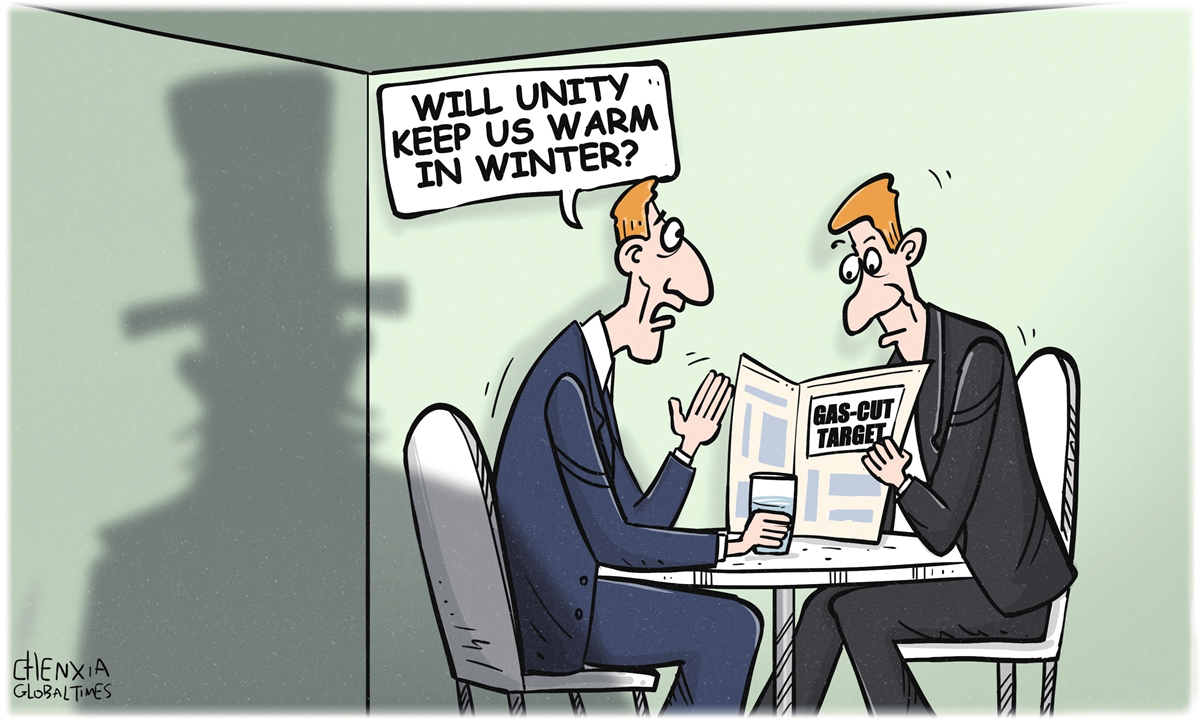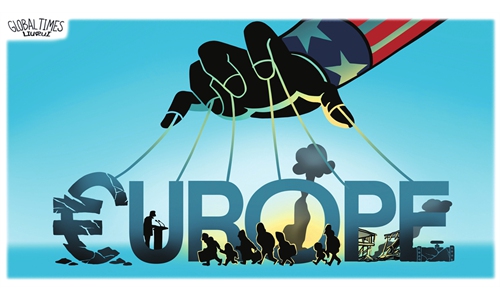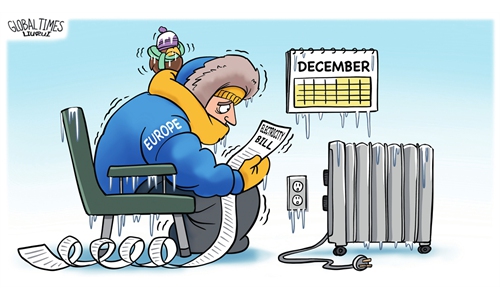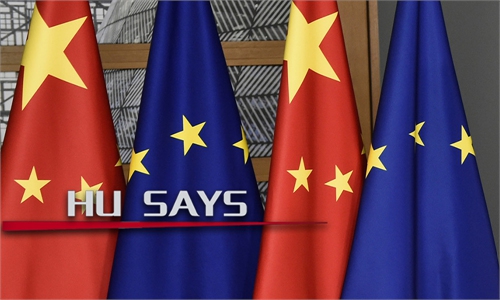
EU Unity Illustration: Chen Xia/GT
EU leaders were divided on gas price cap at their summit on Thursday which was called to grapple with the energy crisis fueled by the situation in Ukraine, according to media reports. The international community once again is focused on a split within the EU.With different energy structures, EU member states have different views on whether gas price cap can achieve its goals and solve their current energy crisis. Those countries not heavily dependent on Russia's gas can be patient in finding alternatives, while those highly reliant on Russian gas have expressed concerns that a gas price cap would not work effectively. As a result, it is difficult to EU member states to keep on the same page.
Another trigger which should not be overlooked in regard to the EU's split on gas price cap is the rift between Germany and France, two traditional driving forces behind broader EU policy initiatives. French President Emmanuel Macron expressed his dissatisfaction with Berlin, saying, "It is not good either for Germany or Europe that it isolates itself." And a regular Franco-German ministerial council scheduled for next week has since been postponed until January.
Strained relations between Paris and Berlin mean that at least in the short run, it will be more difficult for the EU to reach consensus on some major issues, which will pose a big challenge to consolidating EU solidarity. In the past, as long as France and Germany came to a consensus, the two countries could separately persuade other member states, by taking advantage of their influence, making it easier to reach an agreement within the bloc. But with strained French-German ties, divisions within the EU may become more pronounced, and consensus harder to reach.
The reason for the growing divide between Germany and France, to some extent, is that the governments of both countries now face a fraught economic and political landscape. Germany is being governed by a three-party coalition, in which German Chancellor Olaf Scholz's governance will be limited to some extent. In France, with the rise of the far right, Macron has to adjust his policies toward Europe as well as the rest of world, putting more emphasis on domestic affairs.
Germany and France are now appearing to place increased emphasis on their own interests at the expense of broader EU policy, which may further split the bloc and make it harder to form consensus on important issues.
However, it does not mean that the prospects for the EU are all pessimistic. It has been seen that despite splits in some fields, cooperation in other areas has not ceased. The key lies in how EU response to these splits.
In regard to the rift between France and Germany, some voices have been calling for improvements. French Finance Minister Bruno Le Maire said on Thursday that strained relations between France and Germany amid the war in Ukraine and energy crisis required a "reset" to forge a stronger alliance between the two biggest EU countries. As Scholz has been in office for less than one year, a run-in period may be needed for the bilateral ties to return to normal.
When talking about the split among EU member states. In fact, EU member states have been constantly pursuing solutions to deal with their division. For instance, Macron has a vision of a European Political Community and Scholz advocated for a future 36-member European Union "of free and equal people." These can be seen as attempts to reduce the EU's internal conflict and strengthen unity.
It is a test to see whether the whole set of EU rules, including agenda and decision-making mechanisms, can accommodate such a complex situation. And it remains to be seen whether the EU can come up with a better solution to turn these recent divisions into a source of greater unity.
The article was compiled by Global Times reporter Lu Yuanzhi based on an interview with Cui Hongjian, director of the Department of European Studies at the China Institute of International Studies. opinion@globaltimes.com.cn



